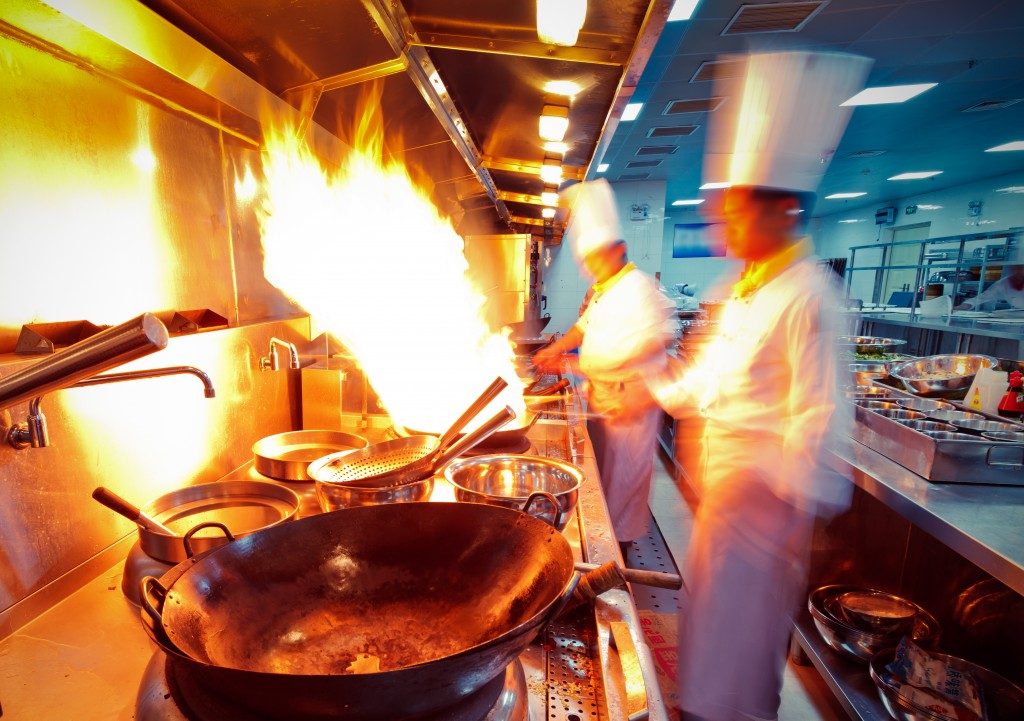Restaurants help people break the routine of always cooking and eating meals at home. Moreover, people prefer holding social and formal meetings in dining establishments. A restaurant is expected to be clean and well maintained. It helps attract new customers and retain old ones as well.
Pest control
Food prepared in restaurants attracts pests such as flies, cockroaches, and rats. Pest infestation violates strict sanitation and food safety requirements. Besides, pests put your restaurant at risk of the introduction of harmful bacteria and diseases. Pest control mechanisms should be put in place and these include cleaning the trash cans regularly. There are companies that provide professional services, such as trash can cleaning in Sandy, Utah.
Trash cans should be cleaned and deodorized to prevent pest infestation. Moreover, all trash cans should have liners and lids. Food should also be stored in sealed containers to avoid pest infestation. Lighting aids in the control of flying insects. Ultraviolet light and warmth given off by lighting equipment such as bulbs attract insects. Both pest control mechanisms are used to lure insects into bag zappers and glue traps.
Regular cleaning and sanitization is a perfect way of keeping away pests. Moreover, crumbs, spills, and splashes should be carefully wiped off the dining tables and seats. Regular inspection of your facility’s exterior is necessary to keep pests off. Any crevice and crack that pests use to sneak in should be sealed. Besides, windows and doors should remain closed to keep insects from sneaking in your building.
However, primary entrances and receiving areas are likely to remain open for long periods. In that case, air curtains should be used.

Cleaning and sanitization
Your restaurant’s cleanliness and ambiance can set the right mood for your customers. High cleanliness standards are key to retaining customers and attracting new ones. Hygiene practices range from simple hand washing to more complex tasks such as maintaining waste drains. The restaurant’s staff should always wear clean work gear. Moreover, their nails should be kept short. They should always clean their hands during food preparation. The restaurant’s washrooms and toilets should always be sanitized.
Getting the right janitorial services will keep your washrooms clean and hygienic. Urinals, sinks, and toilet walls should be cleaned to prevent the spread of bacteria and germs. Moreover, your restaurant’s carpets and floor surfaces should be cleaned regularly. Floor drains should stay clean to prevent the buildup of odor-causing bacteria. Cleanliness is important for food safety and for building a strong brand image for your restaurant.

Proper waste disposal
Poorly disposed of garbage and liquid waste act as a breeding ground for pests, insects, and disease-causing microorganisms such as germs and bacteria. Garbage should be properly disposed of in dumpsters. Both should be tightly sealed and cleaned regularly. Waste management practices such as proper storage of food, keeping inventory stock levels, and paying attention to expiry dates should be implemented. Such measures help avoid food wastage. Moreover, leftover food can be donated to charity, and food waste can be composted so that it can be put to better use.
Many factors aid in the success of a hotel or restaurant business. Quality food and excellent customer service will be of no effect if your restaurant is dirty. A restaurant’s hygiene should always create a good first impression on the customers.

